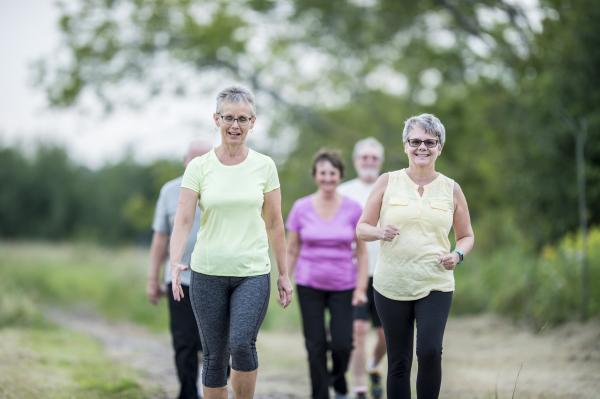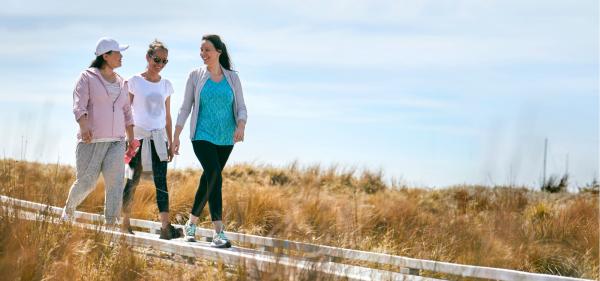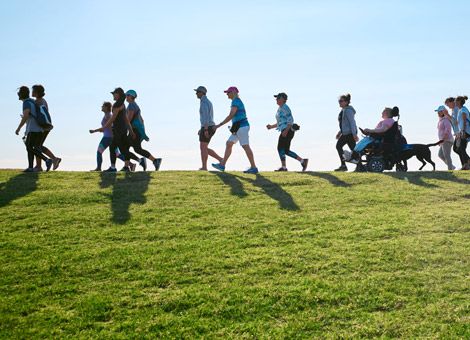Walking for an average of 30 minutes or more a day can lower the risk of heart disease, stroke, type 2 diabetes and some cancers.
Regular physical activity can help:
-
reduce your risk of heart disease and stroke
-
manage weight, blood pressure and blood cholesterol
-
prevent and control diabetes
-
reduce your risk of developing some cancers
-
maintain your bone density, reducing your risk of osteoporosis and fractures
-
improve balance and coordination, reducing your risk of falls and other injuries
-
improve our daily mood which cumulatively leads to better mental health
Find your 30
All adults aged 18-64 years should aim for 150 minutes of moderate physical activity each week. That’s 30 minutes on five days of the week. It’s considered ‘moderate’ if it takes some effort, but you’re still able to talk comfortably.
Or start with 10
If you can’t find time for a 30-minute walk, try breaking your 30 minutes of walking into three 10-minute sessions on each of 5 days, is just as beneficial as doing the 30 minutes in one go!
If you're already finding your 30, you should consider picking up the pace, as people who are already active will benefit even more by exercising harder and longer.
For more health benefits, do 300 minutes of moderate activity each week, or 150 minutes of vigorous exercise. ‘Vigorous’ exercise means it requires more effort and makes you breathe harder and faster, for example, jogging where it becomes difficult to hold a conversation.
Some activity is always better than none
When it comes to walking for heart health, some is better than none (and more is even better). If you're not physically active, start by doing 10 minutes of brisk walking, and gradually build up to the recommended amount. Visit your GP or health professional for advice on how to safely build up your movement.
Have a heart condition?
Walking with guidance or supervision is an important part of cardiac rehabilitation programs, and for people diagnosed with heart disease or recovering from a heart attack. But it’s important to speak with your GP to learn how to safely build up your activity.
For more information on ways to build up your walking after a heart event or surgery, visit heartfoundation.org.au.
Ready to take your first step?
Heart Foundation Walking offers many types of walking groups all over Australia. Our program includes everyone regardless of age, fitness level, and location.


Walking Tips
Walking is a great introduction to physcial activity, and is as easy as it sounds.
Take the dog for a walk, walk the kids to school, jump on a treadmill or walk around your local neighbourhood.


Walking Stories
Do you love to walk? We're always looking for stories about how our members keep active and can help inspire others.


